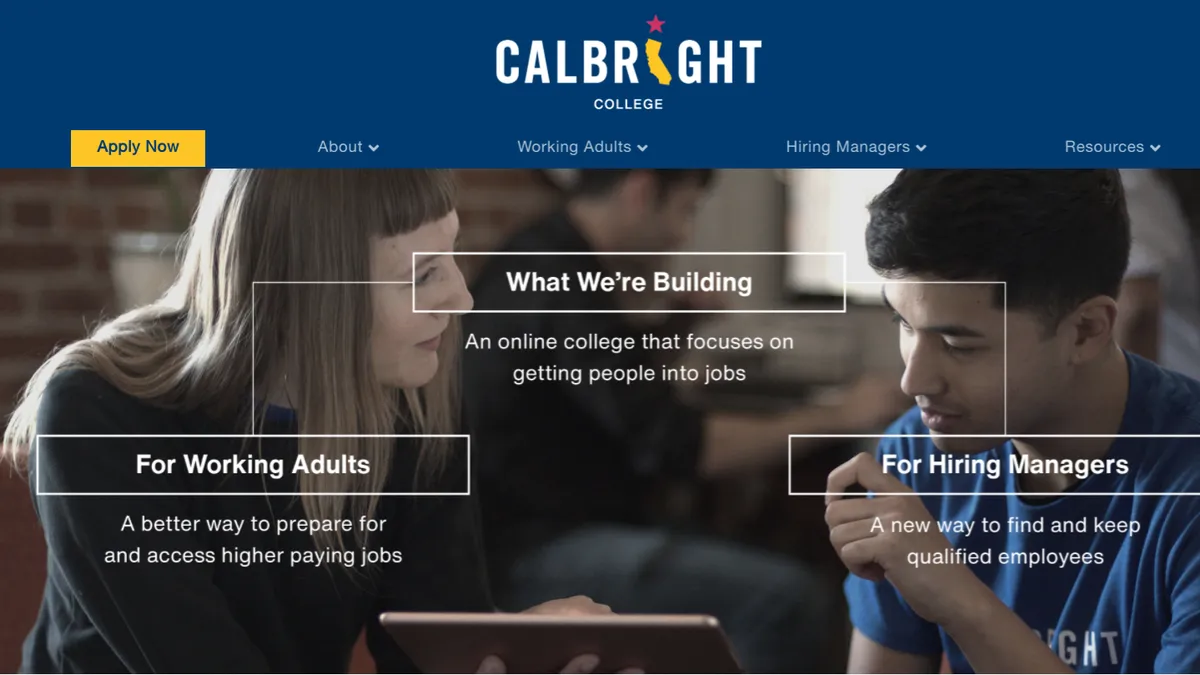Dive Brief:
-
Calbright, California's free online college that offers nondegree credentials, is partnering with another community college within the state's system to create transfer pathways for its students.
-
The board of trustees also approved hiring eight faculty members and confirmed Ajita Talwalker Menon, a former Obama administration official, as Calbright's permanent president and CEO.
-
California lawmakers attempted to defund Calbright last month, but it survived the chopping block with the support of the state's governor.
Dive Insight:
The new partnership with Compton College and the board's other measures appear to respond to some of the criticism the fledgling college has endured.
Calbright's critics say it duplicates programs offered at the state's other community colleges and note that it has struggled to graduate students and fill key positions. The new partnership will allow Calbright students to transfer into certificate and degree programs at Compton College.
Along with a pipeline of transfer students, Compton College will also be able to use services from Opportunity@Work, Calbright's nonprofit partner that connects employers with job candidates, according to a Calbright press release announcing the news. Calbright will also renovate a space at Compton College.
The news comes just weeks after California Gov. Gavin Newsom struck a deal with lawmakers to spare Calbright, though it lost about $45 million in funding.
The online school and its supporters say the pandemic underscores the need for a public alternative to private nonprofit and for-profit online colleges.
"Calbright removes as many barriers as possible for working adults who want an education that can connect them to economic prosperity, while it simultaneously remains a public trust answerable to the State, not shareholders,” Menon wrote in an op-ed on LinkedIn in early June, when the school was at risk of being defunded.
Likewise, Compton College President Keith Curry wrote an op-ed for the Los Angeles Sentinel late last month in support of Calbright, arguing that the "importance of distance learning opportunities in the current COVID-19 environment makes an even more compelling case for the model.”
Calbright uses competency-based education, which lets students advance through the material at their own pace. This model means to better serve adult students, who may not have much time or flexibility to attend in-person classes, supporters say.
So far, the school offers three nondegree programs in high-demand fields: medical coding, information technology and cybersecurity. But as of June 10, only seven students completed one of Calbright's three programs, a spokesperson said at the time.
The college's first cohort consists of 526 students, and officials say they will learn from this group in order to improve the school's curriculum and support services.
Calbright was unable to comment by Education Dive's deadline.















